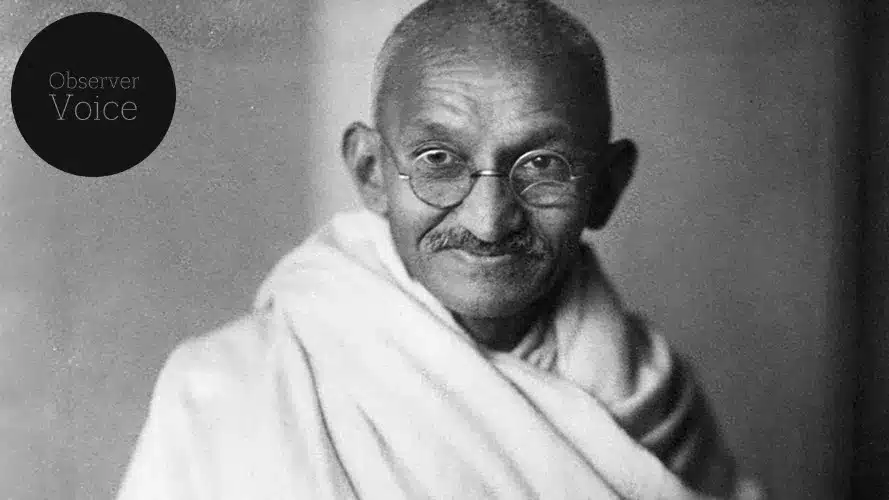Mahatma Gandhi: The Architect of Nonviolent Resistance and Father of the Indian Nation

Mahatma Gandhi (2 October 1869 – 30 January 1948) was an Indian politician, lawyer, social activist, and writer who led India’s nationalist movement. He was also known as the father of the country. Every year the country celebrates Gandhi Jayanti, on his birthday. Martin Luther and Nelson Mandela also adopted his philosophy of truth and non-violence.
Life and Career
Mahatma Gandhi was born on 2 October 1869, in Porbandar, Gujarat. He grew up in Porbandar, where his father was the Dewan or Chief Minister. He went to a local school near his house in Rajkot to get his education. He learned basic math, history, Gujarati, and geography there. Then he went to Alfred High School in Rajkot. He graduated from high school in Ahmedabad in 1887. He enrolled at Samaldas College in Bhavnagar State in January 1888, then the only college in the region that offered degrees. After a few months, he dropped out and went back to Porbandar.
In 1888, Gandhi moved to London to study law. He studied and practiced law at the Inner Temple, one of London’s four law schools, after just 10 days in the city. After joining a vegetarian society in London, he learned about the Bhagavad Gita from vegetarian friends. The Bhagavad Gita later influenced him.
He moved to South Africa to practice law, in 1893. Although he had a first-class ticket, he was kicked out of the train’s first-class apartment because it was only for white people and blacks and Indians couldn’t ride first class. He was seriously impacted by the incident and decided to protest racial injustice. He noted that this kind of thing happened a lot to fellow Indians who were called “coolies”.
The Natal Indian Congress was founded in 1894 by Gandhi to improve Indian rights in South Africa. He became a leader of Indians in South Africa. He was influenced by the idea of Satyagraha, which means devotion to Truth, and he started a nonviolent protest in 1906.
In 1915, he moved permanently to India and joined the Indian National Congress, where Gopal Krishna Gokhale mentored him. His first big accomplishment was leading the Champaran and Kheda Satyagraha in Bihar and Gujarat in 1918. In addition to the Non-Cooperation Movement, Civil Disobedience Movement, Swaraj, and Quit-India, he led a lot of movements against the British.
Non-violent action was called Satyagraha by Gandhi. In their fight for freedom, equality, and social justice, Nelson Mandela and Martin Luther were influenced by his Satyagraha. Gandhi fought for non-violence and truth with Satyagraha. He died on 30 January 1948, in New Delhi, India. On 30 January, Mahatma Gandhi was assassinated by Nathuram Godse, so we celebrate Martyrs’ Day or Shaheed Diwas on this day.
Literary Works
He wrote his autobiography, The Story of My Experiments with Truth. He also wrote Satyagraha in South Africa and Hind Swaraj or Indian Home Rule. He edited Gujarati, Hindi, and English language newspapers, as well as Young India, an English language magazine, and Navajivan, a Gujarati monthly.
Awards and Legacy
Time Magazine named Gandhi Man of the Year in 1930. Gandhi was named one of Time magazine’s top 25 political icons of all time in 2011.
Read More: 27 September: Remembering Raja Ram Mohan Roy on his Punya Tithi
Observer Voice is the one stop site for National, International news, Sports, Editor’s Choice, Art/culture contents, Quotes and much more. We also cover historical contents. Historical contents includes World History, Indian History, and what happened today. The website also covers Entertainment across the India and World.

